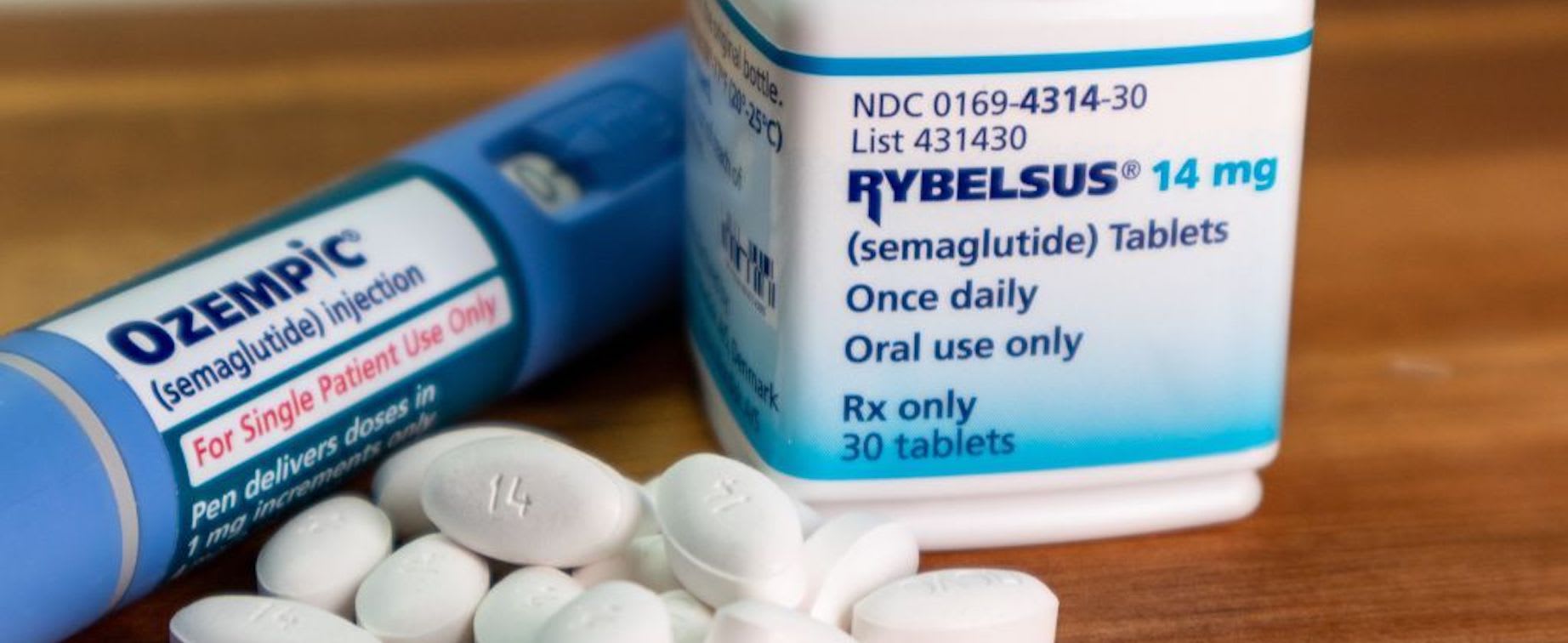Table of Contents
I. Rybelsus and Ozempic: What’s the Difference?
II. Clinical Trials: Weight Loss Results Compared
III. How They’re Taken: Pills vs Injections
IV. Side Effects and Patient Preferences
V. Which One Is Right for Your Weight Loss Goals?
If you have been researching Ozempic vs Rybelsus for weight loss, or you are curious about injectable vs oral semaglutide weight loss results, this article helps you cut through the jargon.
When it comes to weight loss medications, it can be hard to decide which one is right for you. This article will explain what makes each option unique, how you take them, what side effects to expect, and which one could fit your life best. Plus, we’ll break down injectable vs oral semaglutide weight loss results, so you know exactly what to expect.
Rybelsus and Ozempic: What’s the Difference?
In the Ozempic vs Rybelsus for weight loss matchup, the method of administration and dosing rules are the first big split:
- Rybelsus comes in 3 mg, 7 mg, and 14 mg tablets you take every morning with up to four ounces of plain water. After your dose, you wait at least 30 minutes before eating, drinking anything else, or taking other medications. For the dosing schedule, your doctor will start you on 3 mg for a month, then bump to 7 mg, and if you need a higher dose, you can go up to 14 mg. [1]
- Ozempic is a once-weekly injection. It can be taken with or without food and at any time of the day. You inject Ozempic subcutaneously (right under the skin) in your belly, thigh, or upper arm. Your doctor will start you on a 0.25 mg dose for four weeks, then go to 0.5 mg. If you need a higher dose, your doctor might increase it to 1 mg or even 2 mg weekly. [2]
If you’re weighing Ozempic vs Rybelsus for weight loss, think about your mornings versus your week. Rybelsus for weight loss asks for a strict morning routine; Ozempic requires a weekly jab. Both deliver semaglutide, but how you take it depends on personal preference.
Clinical Trials: Weight Loss Results Compared
The biggest question most people have when deciding between Ozempic vs Rybelsus for weight loss is how many pounds come off in real life. Fortunately, there are clinical trials and research studies that have compared injectable and oral semaglutide weight loss results:
- In the PIONEER program, oral semaglutide weight loss results with a 14 mg dose averaged about a 4.4 kg drop (9.7 lbs.), compared to 3.1 kg (6.8 lbs.) with an injectable semaglutide. [3]
- In SUSTAIN trials, injectable semaglutide at 1.0 mg weekly delivered about 4.7 kg (10.4 lbs.) of weight loss versus 0.9 kg (2 lbs.) on placebo. [3]
- In a head-to-head comparison of Ozempic vs Rybelsus for weight loss, adults taking Ozempic lost an average of 6.5 kg (14.3 lbs.) over six months, and those taking Rybelsus lost about 5.9 kg (13 lbs.). More than half in both groups shed at least 5% of their body weight, and 20% on the shot versus 15% on the pill hit a 10% reduction. These differences were small enough that they didn’t break statistical significance. [4]
The bottom line is that if you compare Ozempic vs Rybelsus for weight loss head-to-head, both work. Pills might trail shots by a few pounds in tight trials, but in real life, you see roughly the same amount off the scale.
How They’re Taken: Pills vs Injections

When deciding between Ozempic vs Rybelsus for weight loss, it is important to pick the one that fits your schedule and personal preferences. A consistent routine is crucial when taking a weight loss medication.
Here’s how to take Rybelsus for weight loss:
- First thing in the morning, on an empty stomach, take your Rybelsus dosage with four ounces of plain water
- Do not eat, drink, or take other medications for 30 minutes after taking Rybelsus [1]
Ozempic follows a different schedule:
- Inject Ozempic once weekly (pick the same day every week)
- Inject the medication subcutaneously (right under the skin) in your abdomen, thigh, or upper arm
- The medication can be taken with or without food and at any time of the day [2]
In the Ozempic vs Rybelsus for weight loss decision, pills force a morning calendar hold, while injections force you to remember a weekly date. Neither is easier than the other but choosing the one you’ll stick to is important.
Side Effects and Patient Preferences
Ozempic and Rybelsus have similar side effects, although the clinical trial frequencies differ slightly.
The following side effects (with their frequencies) were reported by participants taking Rybelsus:
- Nausea (11%)
- Abdominal pain (10%)
- Diarrhea (9%)
- Decreased appetite (6%)
- Vomiting (6%)
- Constipation (6%) [1]
Similarly, here is a breakdown of Ozempic side effects in clinical trials:
- Nausea (15.8%)
- Diarrhea (8.5%)
- Abdominal pain (7.3%)
- Vomiting (5%)
- Constipation (5%) [2]
Overall, with side effects so similar, the decision between Ozempic vs Rybelsus for weight loss comes down to patient preferences. If you prefer an oral medication, Rybelsus is a better fit for you. On the other hand, if you want a medication that you only need to take once a week, Ozempic fits that category.
Which One Is Right for Your Weight Loss Goals?

In the Ozempic vs Rybelsus for weight loss battle, there’s no clear “winner,” just the one you will stay consistent with. Rybelsus for weight loss can work well if you dislike needles. Ozempic’s weekly shot might be easier if you don’t like morning hassles.
When you compare oral semaglutide weight loss results side by side with injection data, both methods show real, solid weight drops. This narrows your decision down to routine fit, not overall effectiveness.
Talk to your healthcare provider about side effects, lifestyle fit, and cost. Then, pick the medication that you will adhere to because consistency is the real key to lasting weight loss.
DISCLAIMER: The content in this article is intended for informational purposes only. This website does not provide medical advice. In all circumstances, you should always seek the advice of your physician and/or other qualified health professionals(s) for drug, medical condition, or treatment advice. The content provided on this website is not a substitute for professional medical advice, diagnosis or treatment.
